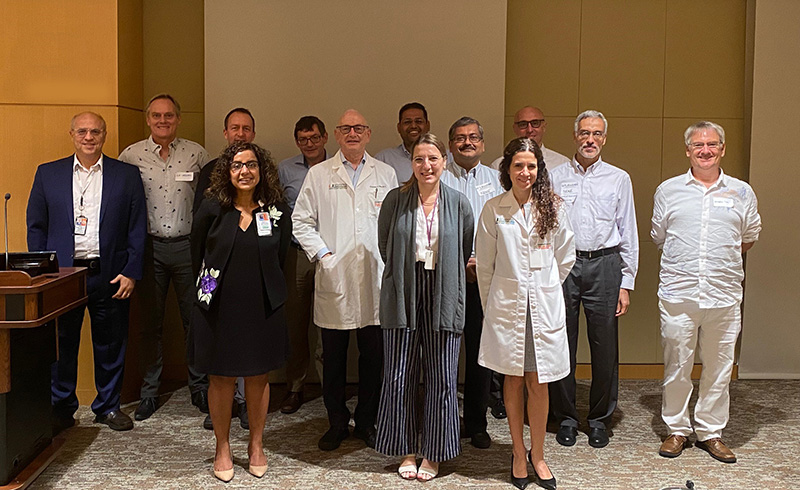In the summer of 2021, with the world still in the grips of a global pandemic, a unique partnership was formed between engineers from the University of Miami College of Engineering and cancer researchers and physicians from Sylvester Comprehensive Cancer Center, part of the University of Miami Health System.
Known as Engineering Cancer Cures, the initiative challenges the boundaries of cancer research in order to transform the quality and longevity of life for patients.
A Braintrust Designed to Create Better Outcomes
Engineering Cancer Cures is the only program of its kind in Florida, and one of the few in the United States. Combining the technical expertise of engineers, cancer researchers, and the medical experience of oncologists, it seeks to develop and implement groundbreaking science to prevent, detect, and treat cancer within Monroe, Miami-Dade, Broward, and Palm Beach Counties.
Working together, the scientists will edit genes and engineer human cells and tissues in ways they hope will help treat previously incurable cancers.
Cancer Doesn’t Discriminate
Engineering Cancer Cures’ four-county South Florida location encompasses a diverse patient population of ethnicities and socio-economic groups. Many of these individuals have a higher incidence of certain cancers and yet they are underserved by traditional cancer research. Treatments approved in previous studies of predominantly White patients may not work in some ethnic groups. Capturing racial differences is crucial to the future of cancer care, making South Florida an important incubator for leading-edge cancer research.
Multidisciplinary Efforts
Engineering Cancer Cures includes three working groups comprised of engineers and physician researchers:
- The Intelligent Materials and Targeting group studies how to improve the accuracy of treating hard-to-reach tumor targets using nanoparticles (microscopic particles containing cancer-fighting substances.) The group also seeks to identify novel targets to diagnose, identify, and treat tumors, and manage pain. Novel targets encompass the latest treatments, including immunotherapy, targeted therapy, and precision medicine.
- By growing cells on a tissue chip that contains complex cancers, the Cancer Tissue Engineering group produces personalized tumor models in the lab. This science enhances oncologists’ understanding of the disease, improves treatments, and reduces the need for animal testing.
- The Artificial Intelligence (AI) Machine Learning, Deep Learning-based Imaging, and Analytics group uses AI to identify, analyze, and locate cancer targets within a patient’s tissue sample and within specific patient populations. AI is increasingly used by clinicians to modify treatments as the disease changes.
Pioneering a New Era of Cancer Care
If the science behind this initiative is complex, the premise is simple: By talking to each other, engineers, cancer researchers, and oncologists gain valuable insight into cancers that don’t respond to traditional treatment.
Through setbacks and successes, these scientists never lose sight of their mission, poignantly expressed in a patient’s request:
“Please make the therapies better than the disease.”
Better therapies do not compromise quality of life, they extend and improve life. It is an ambitious goal, given the evolving nature of the disease. However, as any pioneer will tell you, you can’t get to where you want to be without believing you can get there.
For more information, contact:
Shanta Dhar, Ph.D.
sxd783@miami.edu
410-868-3337
Ashutosh Agarwal, Ph.D.
a.agarwal2@miami.edu
305-243-8925
Gabriel Diaz
gabrieldiaz@med.miami.edu
305-243-1461
